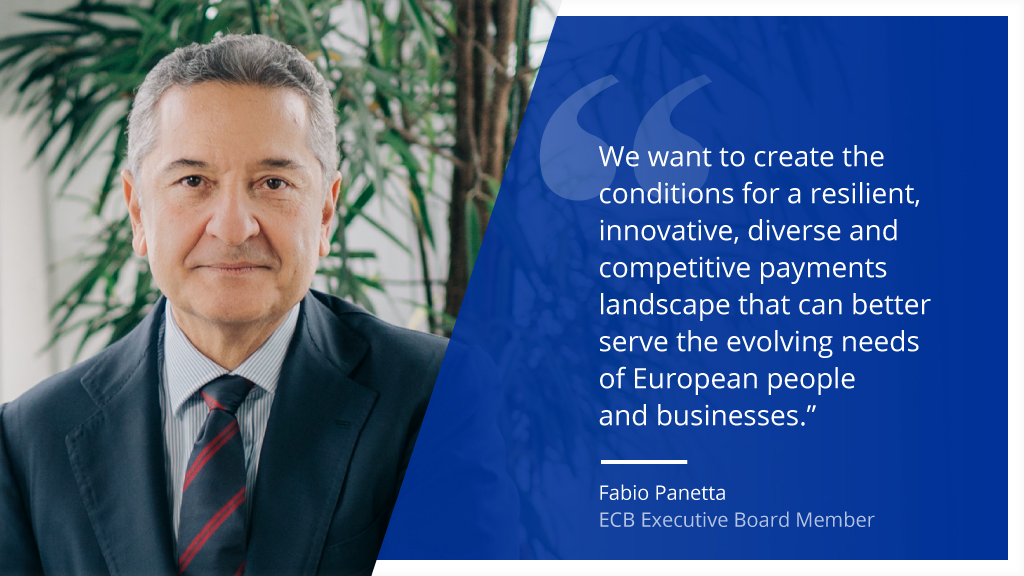
A digital euro would increase consumer choice, reduce costs and support the digitalisation of the economy, says Executive Board member Fabio Panetta. It would offer a safe means of payment and preserve money as a public good. Full speech ecb.europa.eu/press/key/date… 1/4 

Panetta: A digital euro would be an efficient means of payment, not a form of investment. This would prevent people moving large deposits from commercial banks to the central bank and address risks to the international financial system 2/4
Panetta: A digital euro would have the protection of privacy as a key priority, helping to maintain trust in payments. We have already analysed privacy-enhancing techniques, and we will continue to do so in the coming months 3/4
Panetta: Our objective would be to make a digital euro work with private payment solutions. It would level the playing field by making it possible for all market participants to offer, at a lower cost, products that allow people to pay instantly 4/4
• • •
Missing some Tweet in this thread? You can try to
force a refresh





